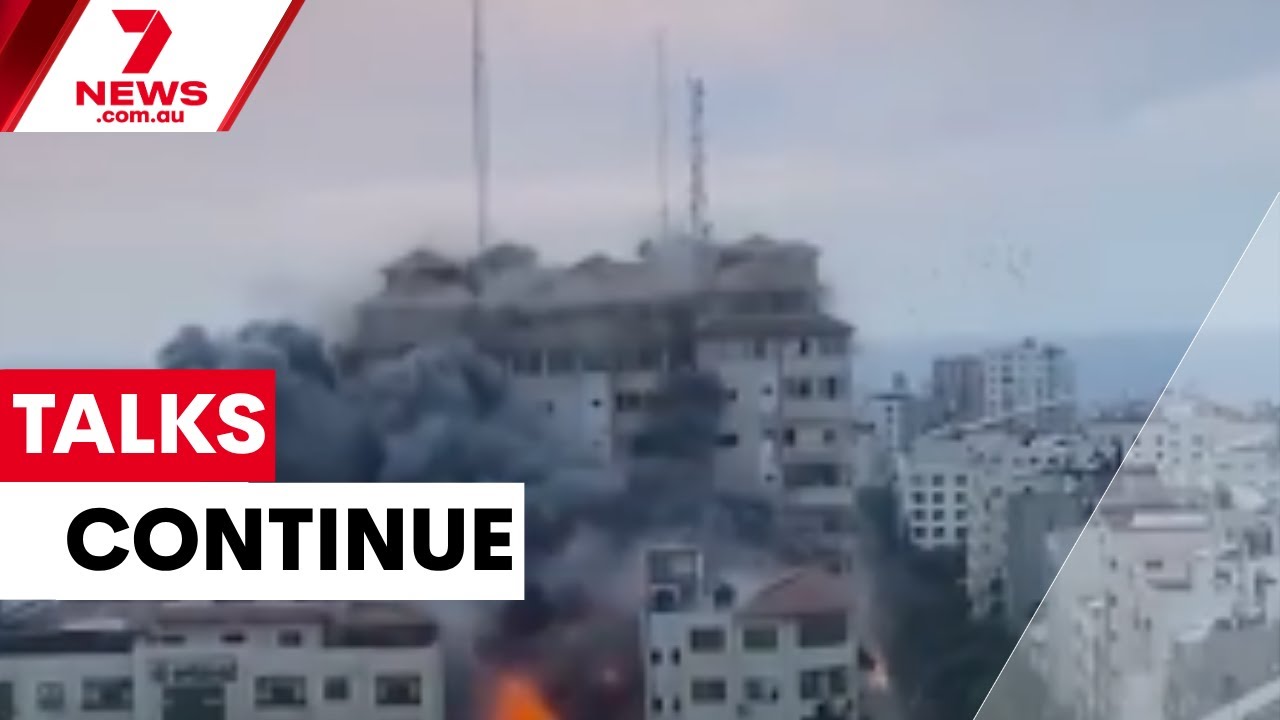Ceasefire talks: October 7 anniversary

Table of Contents
- Somber milestone as negotiators meet and tensions flare at home
- What’s happening overseas: negotiations and cautious optimism
- Who, what and where: the anniversary in Israel and Gaza
- Local impact in Australia: protests, graffiti and a landmark court fight
- Court case over Sydney Opera House protests
- What leaders said
- Why this matters
- Conclusion
- FAQs
Somber milestone as negotiators meet and tensions flare at home
CANBERRA, AUSTRALIA — Ceasefire talks are underway as the region marks the second anniversary of the October 7 attacks. The anniversary is a day of mourning for the families of the 1,195 people killed in the Hamas attack, even as negotiators in Egypt work to advance a US-backed 20-point plan aimed at ending the bloodshed in Gaza.

What’s happening overseas: negotiations and cautious optimism
Diplomats and negotiators from both sides convened in Egypt to try to make the 20-point plan — associated with former US President Donald Trump — operational. Delegates have reported progress but say difficult issues remain unresolved.
Voices from Gaza expressed cautious hope. One local observer said,
“I hope that the brutal war launched by Israeli forces in response to that terror attack is nearing an end.”The mood is fragile: there is optimism about a ceasefire, but many painful questions remain, including the fate of hostages and the humanitarian toll across Gaza.
Who, what and where: the anniversary in Israel and Gaza
In Israel, communities observed a quiet, reflective morning. Families and officials marked the lives lost two years earlier and reiterated demands for the return of hostages still held captive.
In Gaza, the international focus on negotiations has brought a measure of guarded hope, but negotiators say thorny issues — prisoner exchanges, rescue and reconstruction guarantees, and security arrangements — are yet to be fully resolved.
Local impact in Australia: protests, graffiti and a landmark court fight
Tensions in Australia heightened on the anniversary. In Fitzroy, Melbourne, vandals spray-painted “Glory to Hamas” and a Palestinian flag on a billboard, sparking community outrage and renewed debate about public demonstrations.

Planned pro-Palestinian protests in Sydney and Melbourne drew firm statements from national leaders urging restraint. Prime Minister Anthony Albanese said the day should be about “decent human behaviour,” not political demonstrations, warning that inflammatory actions could damage the Palestinian cause in Australia.
Court case over Sydney Opera House protests
A landmark hearing in Sydney saw Jewish community leaders join police in seeking to prevent a planned demonstration at the Sydney Opera House. Authorities cited concerns about crowd size and the risk of crowd crushes, and community leaders argued the Opera House should remain a unifying national site, not the venue for divisive political rallies.

The hearing produced no final outcome and the matter was adjourned to the Court of Appeal for further consideration.
What leaders said
Prime Minister Anthony Albanese urged Australians to observe the anniversary with respect and restraint. The Deputy Prime Minister, referred to in reports as Richard Miles, said the day could only be about commemoration and remembrance after the mass loss of life two years ago.
Police and Jewish leaders emphasised public safety and social cohesion, while some protest organisers defended their right to demonstrate and signalled they would continue to challenge restrictions in court.
Why this matters
The anniversary underlines how international conflicts reverberate at home. Negotiations in Egypt could shape whether and how hostilities end, while domestic reactions — from graffiti to court fights — show the emotional and political stakes within Australian communities.
Balancing the right to protest with public safety and the sensitivities of those grieving remains a live challenge for government, law enforcement and civil society.
Conclusion
The October 7 anniversary is both a reminder of deep grief and a critical moment for diplomacy. Ceasefire talks offer a pathway to reduce suffering, but significant obstacles remain. At home, leaders continue to call for decency and careful stewardship of national symbols as courts consider how best to manage public demonstrations.
FAQs
Q: What are the ceasefire talks about?
A: Negotiators from Israel, Palestinian representatives and international intermediaries are discussing a US-linked 20-point plan aimed at pausing hostilities, securing hostage releases, and setting terms for humanitarian access and reconstruction.
Q: How many people were killed on October 7?
A: The video reports 1,195 people were killed in the Hamas attack; official figures are often cited in media reports and public statements and may vary slightly across sources.
Q: Why are there protests in Australia?
A: Demonstrations are planned by pro-Palestinian groups to draw attention to the situation in Gaza. Authorities and some community groups have sought to restrict rallies at national landmarks, citing safety and the need for those sites to remain unifying symbols.
Q: What action did Australian leaders take?
A: The Prime Minister and senior ministers urged restraint and respectful behaviour on the anniversary, emphasising commemoration rather than protest.
Source: This article is based on coverage from 7NEWS Australia and the referenced broadcast. For the original report and footage, watch the embedded video above or visit 7NEWS.
The information in this article has been adapted from mainstream news sources and video reports published on official channels. Watch the full video here Ceasefire talks | 7NEWS


